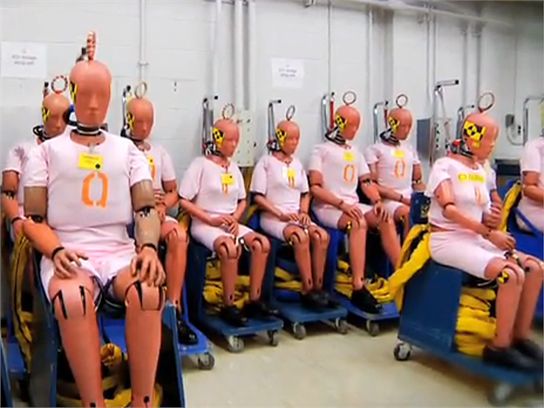From “Google Glass and the Rise of Outsourcing Our Memories,” Tom Chatfield’s new BBC piece about the future of brain augmentation in the face of seemingly infinite information:
“As early as 1945, the American engineer and inventor Vannevar Bush described the potentials of a hypothetical system he dubbed ‘Memex’: a single device within which a compressed, searchable form of all the records and communications in someone’s life could be stored. It’s a project whose spirit lives on in Microsoft’s MylifeBits project, among other places, which attempted digitally to record every single aspect of a modern life – and presented the results in a book by researchers Gordon Bell and Jim Gemmell entitled Total Recall: How the E-Memory Revolution Will Change Everything.
What Google’s glasses suggest to me, though, is a giant leap forward in the sheer ease of capturing and broadcasting our lives from minute to minute – something that smartphones have already revolutionised once during the space of the last decade. Far more than mere technological possibility, it’s this portability and seamlessness that seem likely to most transform the way we live over the coming century. And it makes me wonder: what exactly does it mean when a computer’s memory becomes a more and more integral part of our own process of remembering?
The word ‘memory’ is the same in both cases, but there’s a huge gulf between the phenomena it describes in people and in machines. Computers’ memories offer a complete, faithful and objective record of whatever is put into them. They do not degrade over time or introduce errors. They can be shared and copied almost endlessly without loss, or precisely erased if preferred. They can be fully indexed and rapidly searched. They can be remotely accessed and beamed across the world in fractions of a second, and their contents remixed, augmented or updated endlessly.”
••••••••••
Animated version of Vannevar Bush’s Memex diagrams:
From “As We May Think,” by Vannevar Bush in the Atlantic,1945: “There is a growing mountain of research. But there is increased evidence that we are being bogged down today as specialization extends. The investigator is staggered by the findings and conclusions of thousands of other workers—conclusions which he cannot find time to grasp, much less to remember, as they appear. Yet specialization becomes increasingly necessary for progress, and the effort to bridge between disciplines is correspondingly superficial.
Professionally our methods of transmitting and reviewing the results of research are generations old and by now are totally inadequate for their purpose. If the aggregate time spent in writing scholarly works and in reading them could be evaluated, the ratio between these amounts of time might well be startling. Those who conscientiously attempt to keep abreast of current thought, even in restricted fields, by close and continuous reading might well shy away from an examination calculated to show how much of the previous month’s efforts could be produced on call. Mendel’s concept of the laws of genetics was lost to the world for a generation because his publication did not reach the few who were capable of grasping and extending it; and this sort of catastrophe is undoubtedly being repeated all about us, as truly significant attainments become lost in the mass of the inconsequential.
The difficulty seems to be, not so much that we publish unduly in view of the extent and variety of present day interests, but rather that publication has been extended far beyond our present ability to make real use of the record. The summation of human experience is being expanded at a prodigious rate, and the means we use for threading through the consequent maze to the momentarily important item is the same as was used in the days of square-rigged ships.
But there are signs of a change as new and powerful instrumentalities come into use.”

